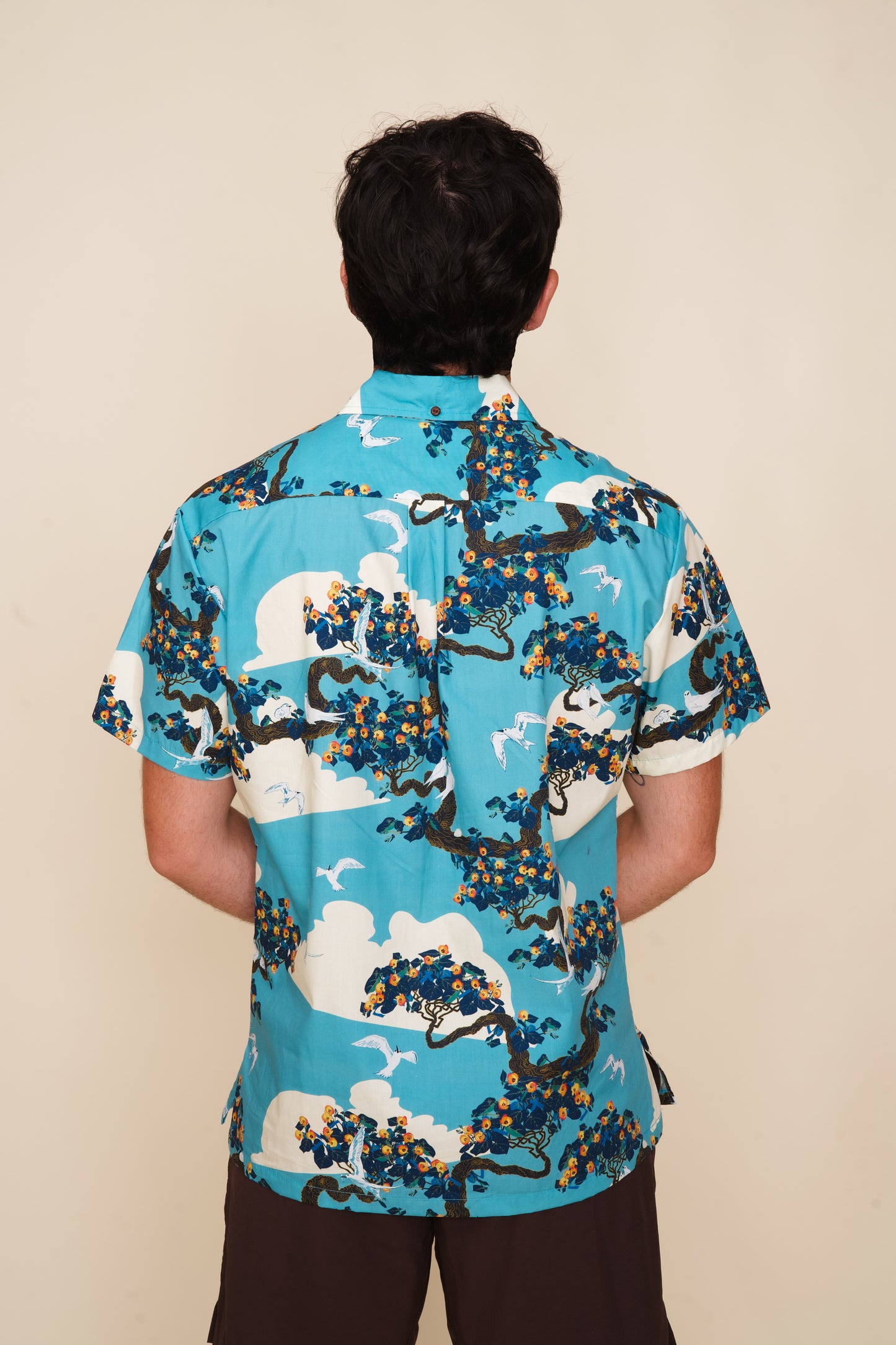A past Hawai’i echoes with visions of a future one. Manu-o-kū birds soar, nest, and fish amongst the coastal flowering Hawaiian hau trees. The hau flowers last only a single day each, going from yellow at dawn to orange and red as the day ends.
The manu-o-kū, also known as the white tern, holds deep cultural and ecological significance to Hawai’i. When seen out at sea, these graceful birds are natural indicators to seafarers that land is near. Like fI Sherman, they go out to sea in the mornings to fish and return to shore in the evenings.
Once rare in Hawai’i, except in the remote northwestern Hawaiian Islands. Their comeback once the 1970s in urban Honolulu is a testament to dedicated community conservation efforts, while echoing the timeline of the Hawaiian cultural renaissance. Honolulu has implemented measures to protect the trees where they are actively nesting from disturbance, marking them with a blue ribbon around the trunks.
-David Shepard









